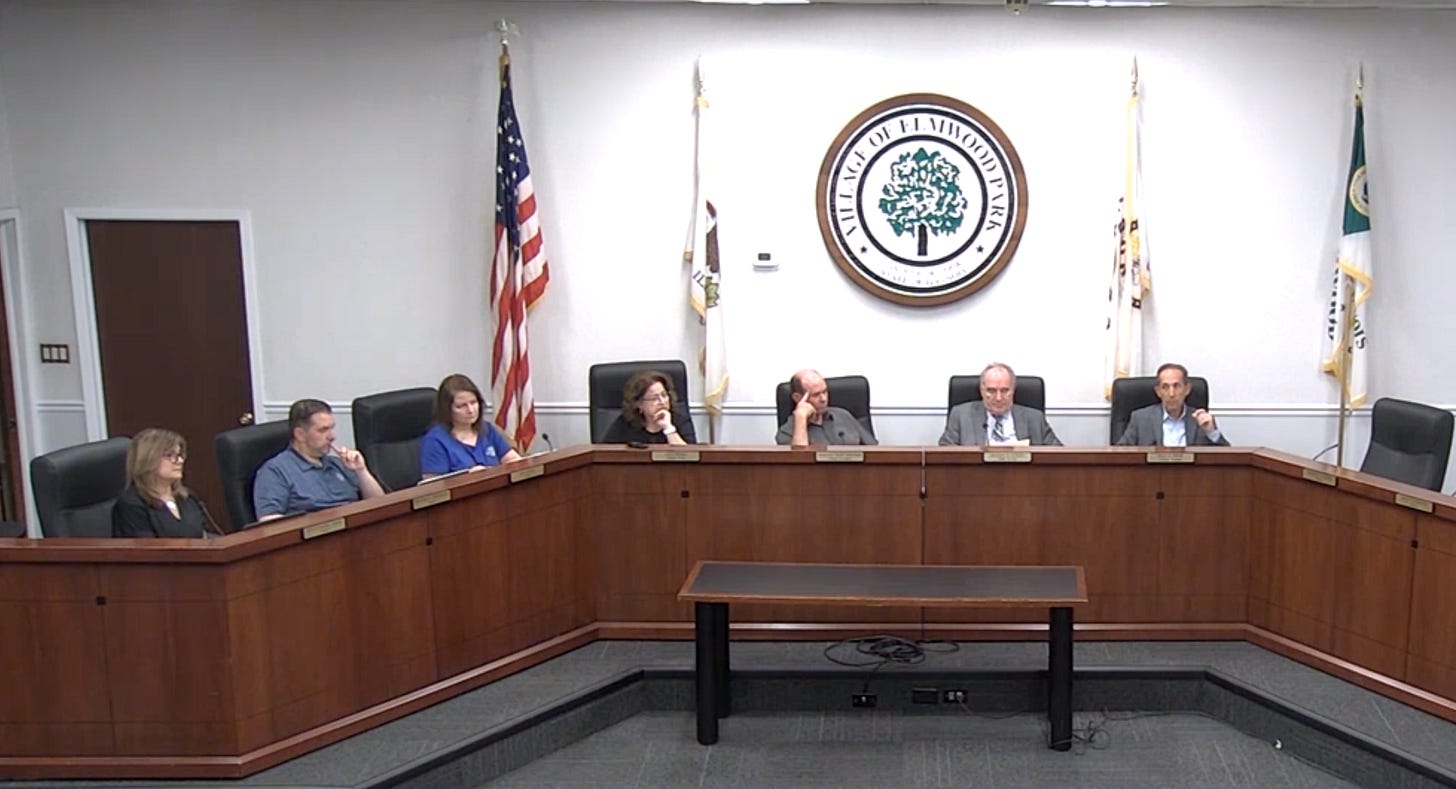Making Elmwood Park A Resilient Community

[Editor’s Note: The following is a version of remarks that were shared by Dianne E. Reyes on June 2, 2025, during the public comment portion of the Elmwood Park village board meeting. This comment is republished as part of the Elmwood Park Advocate’s commitment to covering the village board and amplifying community voices. The next village board meeting is July 7, 2025.]
By Dianne E. Reyes
Good evening. My name is Dianne E. Reyes, and I’m a resident of Elmwood Park. Thank you for the opportunity to speak tonight for public comments.
I currently work for the U.S. Department of the Interior as a Grants Management Officer, though I’m on administrative leave until the end of September, having accepted a deferred resignation. Before stepping away, I asked the agency’s ethics office for guidance on speaking in community spaces like this. I was told it’s fine to share from a personal, autobiographical perspective—so I hope you’ll allow me to do just that.
I grew up in Franklin Park and graduated from East Leyden High School in 2004. I spent my 18th birthday in the U.S. Army basic training and was deployed to Iraq by the time I turned 21. Since then, I’ve spent my civilian career in public service—working at the Department of Labor on workforce development grants, at FEMA on disaster recovery and hazard mitigation projects for the Great Lakes States & Tribal nations, and at the Environmental Protection Agency managing environmental funding for clean water, air quality, and underserved communities.
In my role at the Interior Department, I was the award official on funding for environment restoration and orphaned oil and gas well remediation on both state and tribal land. My job, like that of many federal workers, has been about enforcing the regulations and guidelines that protect our health, our land, and our future.
I share this not to make it political, but to highlight something many people don’t often see: that much of our daily safety—clean air, safe drinking water, disaster readiness—is made possible by behind-the-scenes public work. And as many of those guardrails begin to disappear at the national level, some quickly, some quietly, the responsibility for resilience shifts closer to home. As these protections roll back, we must begin asking: What does it mean to be a prepared community?
That’s why I am here today. Not to make a political statement, but a community one. Not to make an ask or specific proposal, but to encourage residents that if there were ever a moment to talk about what it means to be a sufficient and united community, this is it.
If there’s ever been interest in building a community garden, this is the moment.
If there’s ever been curiosity about passing an ordinance for backyard chickens, this is the moment.
If there’s concern about extreme or unusual weather, vulnerable populations, or food insecurity, this is the moment.
It’s time to start thinking together about what local resilience could look like, and how we can show up for one another in meaningful ways.
And lastly, while I know immigration can be a complex issue, I want to address the deep concern I feel when I hear reports of immigrants being swept from the streets and worksites.
Regardless of status, these are human beings. Many of them are working families. Some may be part of the same community ecosystem we all belong to.
If Elmwood Park stands for peace, as the monument outside this building declares, let’s make sure we embody that in both word and practice.
My husband and I chose Elmwood Park as the place to raise our children, just like many families who value a strong, connected community. Let’s make sure that community resilience includes everyone. Thank you.


So well said and a relief to hear that there are others in the community who share the same values.